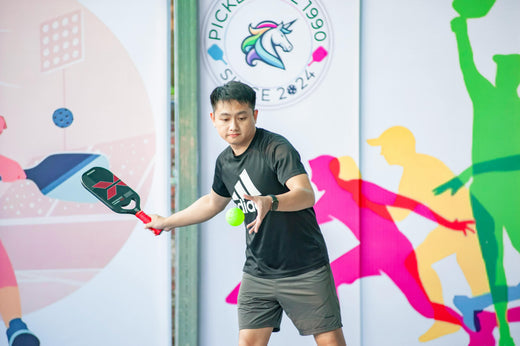
Pickleball Olympics: Could It Reach the World Stage?
Share
Pickleball, a sport blending elements of tennis, badminton, and table tennis, has quickly become a global phenomenon. With its accessibility, simplicity, and community-driven appeal, it has captured the hearts of recreational and competitive players alike. As the sport’s popularity soars, one question arises: could pickleball ever be part of the Olympics?
This article delves into pickleball’s growth, the requirements for Olympic inclusion, and the progress being made to elevate it to the pinnacle of international sports.
The Rapid Growth of Pickleball
Invented in 1965 by Joel Pritchard, Bill Bell, and Barney McCallum in Washington State, pickleball began as a backyard pastime. Today, it is played in over 70 countries, with organizations like USA Pickleball and the International Federation of Pickleball (IFP) leading its expansion and standardization.
Several factors contribute to pickleball’s rise:
- Accessibility: With its small court size and straightforward equipment, pickleball is easy for anyone to pick up and play.
- Community Appeal: The sport fosters inclusivity, drawing players of all ages and abilities.
- Competitive Development: Professional leagues like Major League Pickleball (MLP) have elevated the sport, attracting sponsorships and televised matches.
Despite its rapid growth, Olympic inclusion demands more than just popularity.
What Does It Take to Become an Olympic Sport?
The International Olympic Committee (IOC) has specific criteria for a sport to be included in the Games:
-
Global Presence:
- For men’s competition, the sport must be played in at least 75 countries across four continents.
- For women’s competition, it must be played in at least 40 countries on three continents.
-
Governance and Standardization:
- A recognized international governing body must oversee consistent rules and fair play.
- The IFP currently serves this role for pickleball but requires further expansion to meet IOC standards.
-
Historical Presence and Recognition:
- The sport needs a history of international competitions and recognition by national governing bodies.
-
Popularity and Spectatorship:
- It must attract spectators, generate revenue, and align with the Olympic values of inclusion and excellence.
Pickleball is making strides in these areas, but challenges remain.
Efforts to Bring Pickleball to the Olympics
The pickleball community is working hard to achieve Olympic status. Key initiatives include:
-
Expanding International Reach:
- The IFP is growing the sport’s presence globally, with events like the Bainbridge Cup and Asian Pickleball Open showcasing its appeal across continents.
-
Boosting Professional Competitions:
- Tours like the APP Tour and PPA Tour attract elite athletes and major sponsors, while televised and streamed matches broaden the audience.
-
Investing in Youth Development:
- Youth programs and school initiatives introduce pickleball to younger generations, ensuring its long-term growth.
-
Standardizing Rules and Governance:
- The IFP is unifying rules and governance to meet the IOC’s criteria for consistency.
Challenges on the Path to Olympic Inclusion
While pickleball is progressing, several obstacles must be addressed:
- Global Reach: The sport remains most popular in North America. Efforts to expand into regions like Africa, the Middle East, and Eastern Europe are essential.
- Perception: Some still see pickleball as a casual pastime rather than a serious competitive sport. Building its professional image is critical.
- Competition for Olympic Slots: Many established sports with larger global audiences are vying for Olympic inclusion.
The Road Ahead
For pickleball to become an Olympic sport, the community must focus on:
- Expanding its global footprint.
- Enhancing its competitive and spectator appeal.
- Engaging younger generations through targeted programs.
Collaboration between players, organizations, and sponsors will be vital to overcoming challenges and solidifying pickleball’s place on the world stage.
At Vidstrik, we’re proud to support pickleball’s journey by providing premium equipment and accessories for players of all levels. As the sport grows, we’re excited to be part of its evolution—perhaps even to Olympic glory.
Conclusion
Pickleball’s journey to Olympic recognition reflects its incredible growth and passionate community. While challenges remain, its unique blend of inclusivity, competition, and accessibility makes it a strong contender for future Olympic Games.
Let’s continue to support and celebrate this remarkable sport. The next time you pick up a paddle, you might just be participating in the future of Olympic history!
